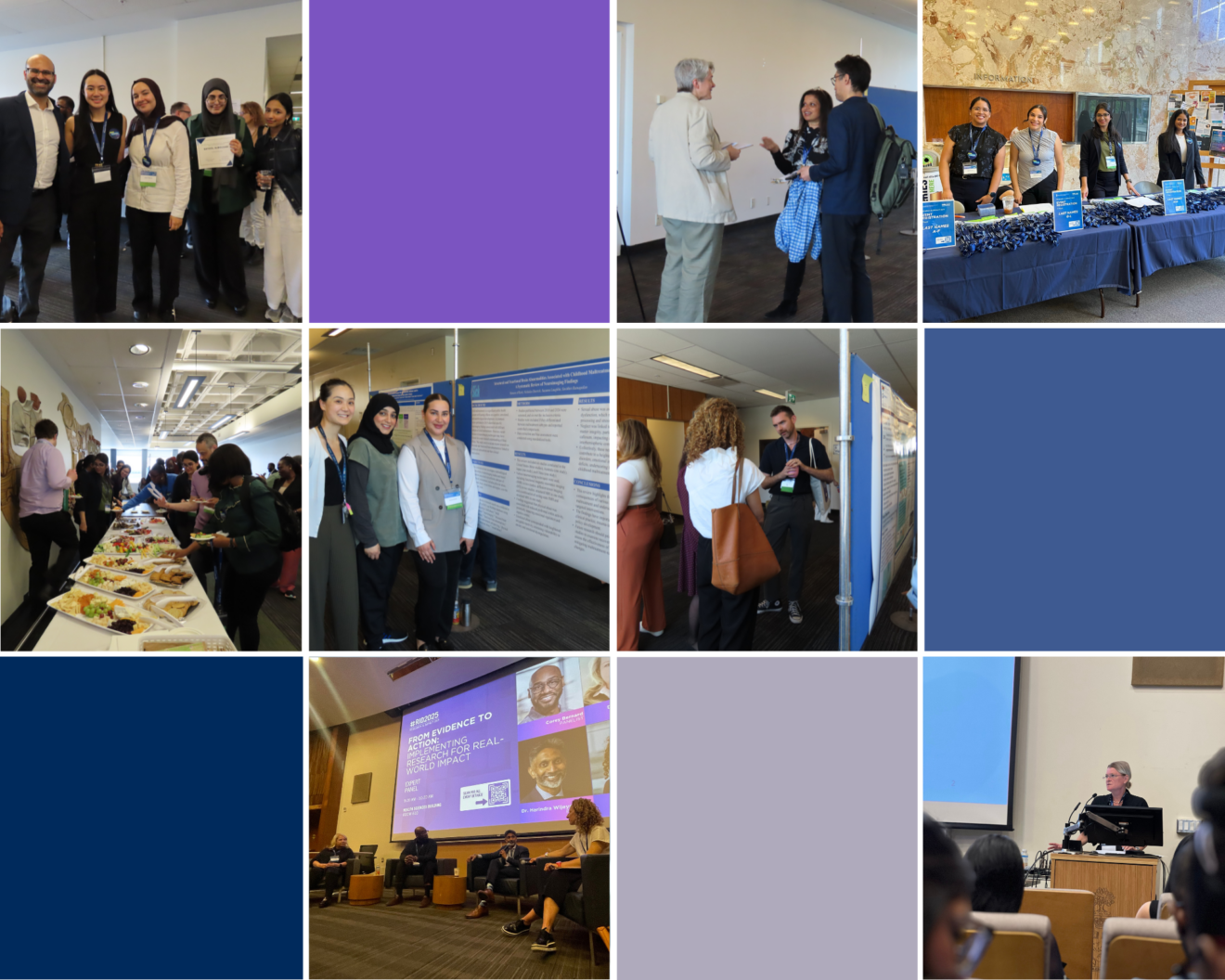The HSR program is at the forefront of research and collaborations that span regional, national, and global contexts.
Trainees will build their academic and professional portfolios while collaborating with a network of leading health service researchers in Canada and internationally. The program offers diverse areas of study to lead high-calibre research and prepare trainees for leadership roles in academia, research institutes, as well as in policy and planning positions in both the public and private sectors.
Studying with an Emphasis
HSR offers students the unique opportunity to focus their education on the following areas of study:
Faculty lead: Boriana Miloucheva & Alex Hoagland
Students will gain an in-depth understanding of fundamental economic principles as they relate to the healthcare sector. This emphasis builds capacity in mathematical and statistical techniques while providing students with practical knowledge on how to effectively communicate research motivations, study designs, findings, and implications to various audiences including academics and decision-makers. Students will feel equipped to critically analyze health policy issues and have a deeper understanding of resource allocation, health services supply, and how healthcare markets work.
Areas of study include:
- Health economic theory
- Health economic evaluation
- Health econometrics and machine learning
Faculty lead: Nelson Shen & Nur Camellia Zakaria
Students will design, evaluate, and use health informatics capabilities to better manage information and improve healthcare delivery. This highly interdisciplinary emphasis tackles major issues around the design, development, and evaluation of electronic solutions in consumer, community, and acute care settings. Students will be prepared with the necessary research tools, including the use of conceptual frameworks and research methods, to investigate specific areas of interest.
Areas of study include:
- Development and evaluation of digital health innovations
- Implementation of digital health innovations
- Health informatics theory
Faculty lead: Sara Allin & Jean-Louis Denis
Students will investigate the political, social, and economic conditions that produce and distribute health and illness across populations and jurisdictions, and examine the systems devoted to sustaining public health and to financing, governing, and delivering healthcare and related social services.
Areas of study include:
- Comparative health policy and systems
- Public health policy
- Healthcare policy
- Health technology policy
Faculty lead: Lianne Jeffs
Students will explore organizational behaviour, organizational theory, strategic management, implementation science, sociology, and industrial-organizational psychology to understand the organization of health services and the impact of management and organizational practices on performance. This highly interdisciplinary field will explore diverse topic areas including how healthcare organizations are managed, leadership, healthcare practitioners, patient safety and quality of care, team functioning, organizational change, inter-organizational relationships and networks, governance, and evidence-based management.
Areas of study include:
- Health practitioner outcomes (e.g. burnout, turnover)
- Motivation and leadership in HSR organizations
- Strategic decision making
- Change implementation
Faculty lead: Kelly Smith & Patricia Trbovich
The Health Services Outcomes and Evaluation emphasis draws upon several academic disciplines including epidemiology, program evaluation, and economics to systematically examine the impacts of health services on the health status of various populations. Students should have demonstrated knowledge of quantitative, qualitative and mixed methods, primary data collection and secondary data sources, and the strengths, weaknesses and appropriate application of different research designs and data analysis strategies.
Areas of study include:
- Program evaluation
- Comparative effectiveness, safety, economic and other outcomes of health systems, services & programs
- Methods for health services research
Faculty lead: Zahra Shakeri
The Health Systems Artificial Intelligence (AI) emphasis is designed to prepare graduates to significantly contribute to the advancement of AI in health and healthcare. The emphasis will equip students with the necessary foundational knowledge, literacy, and skills to bridge the gap between the rapid advancements in AI and its application to meet healthcare needs. Within this highly emerging emphasis, students will learn foundational concepts, research methods, and ethics related to AI in health.
Areas of study include:
- Health data mining and data science
- Multimodal learning and knowledge representation learning in healthcare
- AI in population and public health, public health surveillance
- Health AI Deployment and AutoML
- AI enable operational efficiency in a healthcare system
- Ethics and policies of AI in health
Faculty lead: David Naimark & Petros Pechlivanoglou
Health Technology Assessment (HTA) is an interdisciplinary field that advances and applies theories, concepts and methods in order to inform decision-makers on the introduction, use, and dissemination of health technology. The HTA emphasis encompasses quantitative and qualitative methods to equip students with skills within the main pillars of HTA to be able to critically analyze health policy issues related to health technology.
Areas of study include:
- Evidence synthesis
- Economic evaluation
- Social, legal and ethical consequences of emerging technologies
Program Highlights

Network with Thought Leaders
Learn and receive mentorship from internationally recognized faculty who are known globally for their innovations in health services research.

Lead Impactful Research
Build skills in leading original, high-calibre practical research that will contribute to the evolution of health systems.

Collaborate with
Others
Learn in an immersive and highly interdisciplinary environment with the opportunity to focus your education in diverse areas of study.
HSR Careers

HSR equips students to take on senior leadership roles within professional practice and academia.
Graduates of the program have found professional opportunities in diverse settings including:
- Community-based healthcare organizations
- Industry (pharmaceutical, medical devices, regulatory)
- Health nonprofits
- Academia and research institutes
- Government agencies
- Global health agencies
People from HSR
Latest Alumni Stories
Latest HSR News
Learn More About this Program
HSR Program Director
Emily Seto
Email Address: emily.seto@utoronto.ca
Leads the management of the HSR Program.
Graduate Administrator
Zoe Downie-Ross
Phone Number: (416) 946-3486
Email Address: ihpme.grad.admin@utoronto.ca
Coordinates student records, graduate funding, and student-related awards.
Graduate Admissions
Christina Lopez
Email Address: ihpme.admissions@utoronto.ca
Manages admissions and responds to all related inquiries.
Graduate Assistant
Tianqi Liu
Phone Number: 416-946-4100
Email Address: ihpme.grad.assist@utoronto.ca
Coordinates various graduate initiatives including defences, student events, and graduation.
HSR Program Assistant
Anita Morehouse
Phone Number: 416-946-3922
Email Address: ihpme.hsr.courses@utoronto.ca
Manages the HSR courses including enrolment, grades, and access to Quercus.




























